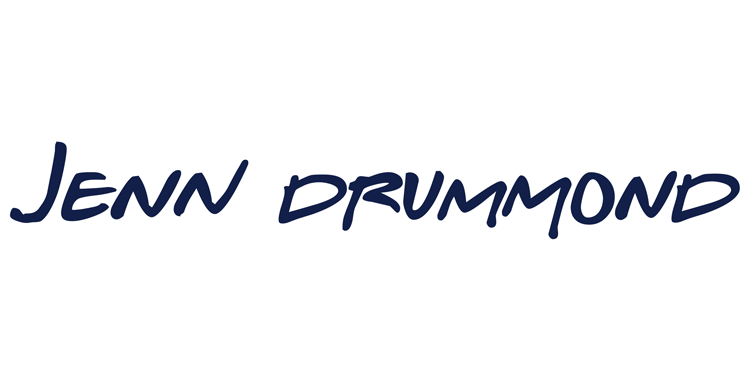In the whirlwind of modern life, where success can feel like an uphill battleground, a robust work ethic isn’t just a trait; it’s your secret weapon. Picture this: you, unstoppable, driven, and relentless, making your mark in this world that never sleeps. That’s the power of a bullet-proof work ethic, and in this electrifying journey, we’re about to unleash its full potential.
As a leader, learning how to improve work ethic is more crucial than ever. Whether you’re an entrepreneur, an employee, a student, or a parent, having a robust work ethic can propel you toward success. In this article, we will explore the nuances of work ethic, understand its importance, and provide practical strategies to improve it.
It’s not merely about working hard; it’s about working smart, staying focused, and embracing challenges. Dedication and discipline are traits I know well, so let’s talk about how to better understand the essence of a bullet-proof work ethic.
Defining Work Ethic
 Work ethic is the heartbeat of productivity; it’s the silent force that propels individuals toward greatness. Beyond the confines of a nine-to-five schedule, it permeates every aspect of life. The list of ways your mindset and behaviors impact your work ethic is lengthy and important.
Work ethic is the heartbeat of productivity; it’s the silent force that propels individuals toward greatness. Beyond the confines of a nine-to-five schedule, it permeates every aspect of life. The list of ways your mindset and behaviors impact your work ethic is lengthy and important.
A positive attitude isn’t just a fleeting emotion; it’s a mindset that fuels perseverance in the face of challenges. Ethical behavior isn’t a checkbox on a to-do list; it’s a compass that guides actions, ensuring fairness and integrity in all dealings. High-quality work isn’t an occasional feat; it’s a standard, a commitment to excellence that transforms ordinary tasks into remarkable achievements.
Moral principles are the bedrock upon which a formidable work ethic is built. It’s the unwavering dedication to honesty, respect, and fairness, even when no one is watching. Professionalism is more than showing up looking polished to a work event; it’s a demeanor, an embodiment of reliability, and a testament to accountability.
Timeliness isn’t merely meeting deadlines; it’s a reflection of respect for others’ time and a demonstration of responsibility. Understanding these elements isn’t a mere intellectual exercise; it’s the cornerstone of personal and professional growth.
Understanding the Importance of a Strong Work Ethic
 A robust work ethic is the golden thread that weaves success stories. It’s the shared commitment to diligence and excellence that molds a group of individuals into a cohesive, high-functioning team.
A robust work ethic is the golden thread that weaves success stories. It’s the shared commitment to diligence and excellence that molds a group of individuals into a cohesive, high-functioning team.
A thriving company culture is the deliberate result of individuals embodying a strong work ethic. It fosters an environment where innovation flourishes, and employees feel not just valued but vital to the organization’s mission.
Job satisfaction, often elusive in mundane workspaces, becomes a natural byproduct of this commitment to excellence. When every team member is dedicated to going above and beyond when they understand that their work ethic shapes the company’s identity, job satisfaction ceases to be an abstract concept; it becomes a daily reality.
Moreover, a good work ethic isn’t confined to the cubicles of corporate life; it extends into personal development, shaping character and carving out a path to individual success. By embracing a stellar work ethic, individuals are not just employees; they become leaders in the making. Taking initiative becomes second nature as they proactively identify opportunities for growth and improvement.
Being a team player isn’t a forced camaraderie but a genuine appreciation for collective effort, where each member’s dedication strengthens the entire team’s resolve. And when faced with challenges, those with a strong work ethic don’t falter. Instead, they maintain their professional demeanor, demonstrating resilience and poise even in the stormiest of situations.
This amalgamation of personal and professional virtues transforms an individual into an asset to the company but also to society at large, embodying the ethos of dedication, collaboration, and unwavering determination.
Self-Assessment and Goal Setting
 Before embarking on the transformative journey of enhancing your work ethic, a profound act of self-reflection is essential. This means having the diligence to honestly evaluate your skills, your shortcomings, and the vast expanse of untapped potential within you.
Before embarking on the transformative journey of enhancing your work ethic, a profound act of self-reflection is essential. This means having the diligence to honestly evaluate your skills, your shortcomings, and the vast expanse of untapped potential within you.
Recognizing your strengths isn’t mere self-indulgence; it’s a celebration of what makes you unique, showcasing the capabilities that can set you apart. Equally crucial is acknowledging your areas of improvement, not as flaws, but as opportunities for growth. It’s within these spaces that your work ethic can evolve as you focus on turning weaknesses into strengths, thereby fortifying your professional arsenal.
Setting goals, the north stars guiding your efforts is the next pivotal step. These goals should never be arbitrary; they’re carefully crafted aspirations that echo your dreams, both personal and professional. They serve as the roadmap, outlining the path toward the best version of yourself. Clear and achievable, these goals act as milestones, signifying your progress and propelling you forward.
Those who know me know how much I value having a profound sense of purpose. Your purpose isn’t just a statement; it’s a driving force, an invisible hand that shapes your every decision and action. It fuels your passion, magnifies your dedication, and acts as the heartbeat of your work ethic.
With a keen sense of purpose, you’re not just working for a paycheck; you’re turning success into significance, infusing every task with purpose, and transforming your work ethic into a force of unparalleled legacy and impact.
Time Management and Prioritization
 Time is a precious resource, and utilizing it wisely is a hallmark of a strong work ethic. Learn to prioritize tasks, eliminate distractions, and stick to a well-defined work schedule. Understand the importance of practicing punctuality and getting enough rest to maintain focus and productivity. Balancing work and personal life is equally important to avoid burnout and maintain a healthy approach towards work.
Time is a precious resource, and utilizing it wisely is a hallmark of a strong work ethic. Learn to prioritize tasks, eliminate distractions, and stick to a well-defined work schedule. Understand the importance of practicing punctuality and getting enough rest to maintain focus and productivity. Balancing work and personal life is equally important to avoid burnout and maintain a healthy approach towards work.
Time management and prioritization require consistency and self-discipline. Avoid the trap of short-term gratification and stay disciplined in your approach. Work hard consistently, maintain a focus on important tasks, and avoid getting sidetracked.
Cultivate self-discipline by eliminating procrastination and embracing a proactive mindset. By doing so, you not only improve your work ethic but also positively impact those around you, including co-workers and company culture.
Handling Setbacks and Challenges
 I love a great comeback story.
I love a great comeback story.
In the unpredictable terrain of professional life, setbacks and challenges are not roadblocks but detours that test your mettle. They are opportunities in disguise, challenging you to dig deeper and find reservoirs of resilience within yourself.
Building this resilience is fundamental to a stalwart work ethic. It’s not just about enduring adversity but flourishing in its presence. Master the art of handling failures with grace, extracting valuable lessons from each experience. Maintain your motivation as a constant flame, illuminating even the darkest of situations.
Challenges, when viewed through the lens of opportunities for growth, become stepping stones toward greatness. Forge an emotional connection with your work, infusing it with passion and purpose. With a positive attitude, challenges transform from daunting obstacles into surmountable puzzles waiting to be solved.
Navigating these tough times with unwavering determination and a spirit unyielding in the face of adversity strengthens your work ethic, making it a beacon of inspiration for others and a testament to your unstoppable spirit.
Seeking Mentorship and Guidance
 One of the best ways to enhance your work ethic is by seeking mentorship and guidance. Mentors are the unsung heroes, the wise souls who have tread the same path you’re on and emerged victorious through sheer dedication and hard work.
One of the best ways to enhance your work ethic is by seeking mentorship and guidance. Mentors are the unsung heroes, the wise souls who have tread the same path you’re on and emerged victorious through sheer dedication and hard work.
Learning from these seasoned individuals, who have achieved greatness through their unyielding work ethic, offers an invaluable treasure trove of insights. By keenly observing their strategies, imbibing their principles, and absorbing their wisdom, you can refine your own work ethic, transforming it from good to exceptional.
My own journey stands as a testament to the transformative power of mentorship, showcasing how the humble act of learning from others can profoundly impact your professional approach. It’s more than just acquiring knowledge; it’s about gaining a fresh perspective, honing your skills, and adopting attitudes that can elevate your work ethic to extraordinary heights.
An added bonus of having the right mentor in your life is they can help you develop your leadership skills. A person with a strong work ethic not only focuses on personal growth but also uplifts those around them.
Be a role model for your co-workers, displaying a dedication to high-quality work and ethical behavior. Lead by example, demonstrating how a positive attitude, accountability, and responsibility can transform the work environment. Your actions can positively influence company culture, inspiring others to develop their work ethics.
Cultivating a Resilient Work Ethic
 In the journey to improve your work ethic, remember that it’s not a destination but a continuous process. Cultivating a resilient work ethic involves self-assessment, time management, consistency, continuous learning, and resilience in the face of challenges.
In the journey to improve your work ethic, remember that it’s not a destination but a continuous process. Cultivating a resilient work ethic involves self-assessment, time management, consistency, continuous learning, and resilience in the face of challenges.
By following these principles, you can develop a work ethic that not only benefits your personal and professional life but also contributes positively to the community and the organizations you are a part of.
By embracing a positive attitude, staying disciplined, and seeking continuous improvement, you can develop a bulletproof work ethic that will serve as the foundation for your success.
Remember, a strong work ethic is not just a trait; it’s a way of life.





Related Posts
7 Reasons Why Professional Development Is Important
How to Create The Ultimate Self-Care Plan
7 Secrets to Becoming a Better Employee